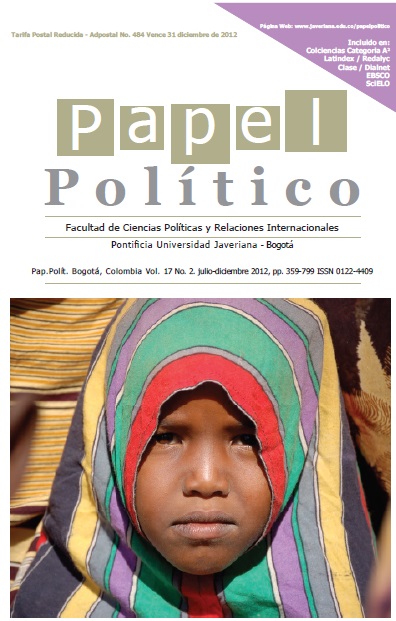Abstract
The Foreign Policy Analysis and the systemic study of International Politics seem to be fields that, due to their own nature, are separated fromeach other. However, this division is more artificial than real. Parting from the agent-structure debate, this paper proposes that each of these parts constitutes itself in its relation with the other. This premise has its foundations on the notion that ideas have actual material effects: the actors’ identities and the structures that define them. Hence, Role theory and Discursive Institutionalism provide alternatives to deal with a complex reality along three levels of analysis: unit-level, microstructure and macrostructure, which are mutually complementary, instead of excluding each other out.
This journal is registered under a Creative Commons Attribution 4.0 International Public License. Thus, this work may be reproduced, distributed, and publicly shared in digital format, as long as the names of the authors and Pontificia Universidad Javeriana are acknowledged. Others are allowed to quote, adapt, transform, auto-archive, republish, and create based on this material, for any purpose (even commercial ones), provided the authorship is duly acknowledged, a link to the original work is provided, and it is specified if changes have been made. Pontificia Universidad Javeriana does not hold the rights of published works and the authors are solely responsible for the contents of their works; they keep the moral, intellectual, privacy, and publicity rights.
Approving the intervention of the work (review, copy-editing, translation, layout) and the following outreach, are granted through an use license and not through an assignment of rights. This means the journal and Pontificia Universidad Javeriana cannot be held responsible for any ethical malpractice by the authors. As a consequence of the protection granted by the use license, the journal is not required to publish recantations or modify information already published, unless the errata stems from the editorial management process. Publishing contents in this journal does not generate royalties for contributors.


